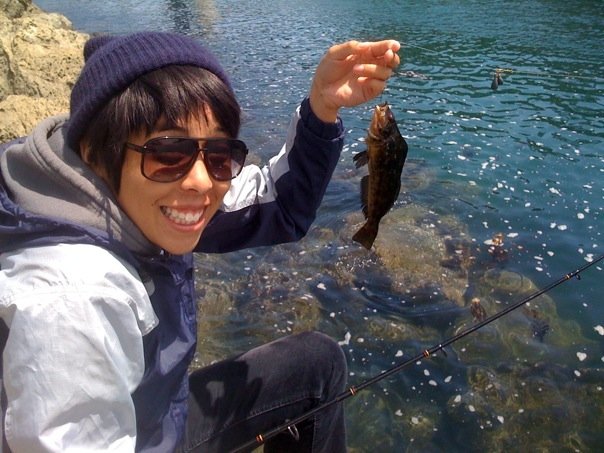Geography PhD candidate Cheryl Chen won the competition for Outstanding Graduate Student Conference Presentation at the Association for Environmental Studies and Science (AESS) Conference in Portland, Oregon, held June 17-20 on the Lewis and Clark College campus. Cheryl’s talk was entitled: “Mapping Fishermen Vulnerability: Unraveling the impact of marine protected areas across California.” Students were asked to submit an extended abstract, and then a group of finalists were selected and asked to present in a special conference session. The criteria used to judge the presentations included:
- Transdisciplinary approach: The work engages more than one traditional discipline, way of knowing, or form of art and as such it creatively moves its audience toward understandings that would not have been possible from the viewpoint of a single field.
- Relevant content: The work discovers reliable and fresh insight on the environment and the human relation with it.
- Production value: The work is crafted using appropriate media and with the highest standards of clarity and rigor.
Cheryl states: “My research aims to empower and give voice to local people. Across global and local scales, I work to understand the political, cultural, and socio-economic factors that influence socio-ecological systems and successful marine conservation in the developing world. Specifically, I am interested in the social sensitivity of marine protected areas and its implications on equitable resource use, access, and control. I am also interested in ways to break out of the paradigm of ‘expert’ knowledge by developing participatory research methods, which engage local communities and enable ownership of management processes.”
Cheryl’s adviser, David Lopez-Carr, comments: “Cheryl has identified a growing topic of concern at the penumbra of human-environment studies: the conflict between the global imperative to protect the environment and local rights to livelihoods. Marine Protected Areas (MPAs) are the regulatory mechanism at the heart of this conflict. Cheryl has identified an important study site for carrying out her research. The Pacific Rim is the heart of global marine biodiversity. Cheryl points out that, as MPAs expand throughout the world, questions emerge regarding how MPAs will affect local people who depend on fishing for their livelihood and overall well being. Consonant with this larger theme, her research question is ‘What are these impacts and how may our understanding of them be used to inform the equitable placement and design of future MPAs?’ Her project promises to build on and inform extant conceptual models of vulnerability and resilience and to pioneer a vulnerability and resilience approach in analyzing MPAs as a politically and socially (as opposed to an ecologically) determining form of natural resource use.”




